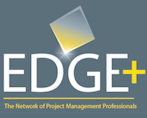Artificial intelligence (AI) has long been a buzzword in the business world, with companies discussing its potential to transform how work is conducted at all levels. As a specialist in project portfolio management (PPM), I have read numerous articles and posts detailing how AI can benefit a project management office (PMO) and project managers by enhancing productivity and prediction-making capabilities.
However, with the emergence of ChatGPT and other AI services, merely discussing the potential of AI in PPM is no longer sufficient to maintain a competitive edge. In this article, I will discuss concrete examples of how AI has improved project management in real-life scenarios. These experiences are based on connecting ChatGPT to a cloud-based PPM solution.
Case 1: AI-Generated Schedules
One critical responsibility of a project manager is creating a schedule. Traditionally, most companies have been relying on predefined schedule templates that contain commonly needed phases, milestones and tasks. However, this static approach to controlling the quality of a schedule may soon be a thing of the past, as AI can generate highly complex and accurate schedules by analysing all available data.
In an experiment, we used empty schedules and asked project managers to describe the context of the initiative. In return, a full work breakdown structure (WBS) and schedule were generated within seconds. As we trained ourselves to describe the context better, the schedules became more accurate. Simply stating the context as “ERP implementation project with a 12-week duration” could be improved by adding more context, such as “global roll-out of a new ERP system to five regions following the PMBOK methodology, starting the second week of May 2023 and to be finished a year after.”
In roughly 30 seconds, a full schedule was returned, containing all the requirements, the proposed task duration and a score that reflected the likelihood of the AI’s estimation of the task duration. This alone could save project managers hundreds of hours, and it could also assist the PMO in creating better templates as they connect their own experience to the rest of the world. The output could surely lead to more accurate schedules, better resource allocation and, ultimately, more successful projects.
Case 2: AI-Generated Risk Logs
One of the critical aspects of project management is managing risks. Identifying potential risks early in the project cycle is crucial to ensure the successful completion of the project. Risks can be attached to different areas, such as the business case itself, resource availability, schedule, quality and more.
An experienced project manager can quickly create a log of potential risks based on their own experience. They can also predict the probability and impact of the risks and explain how to mitigate them in case they become real issues.
However, pulling from one’s own experience is not always feasible. That’s where the PPM tool and generative AI come into play. By connecting the two, project managers can generate a risk log by simply explaining the context of the project and requesting a certain number of risks. Within seconds, the AI populates, categorizes and ranks the risk log according to the context. It could also be asked to write detailed risk descriptions, mitigation steps and contingency plans. Again, simply think of this as an assistant that pulls from the combined knowledge available on the internet—it’s massive.
While there could be many internal reasons why certain risks should be added manually, AI-generated risk logs could serve as a starting point. For less experienced project managers, having a full risk log readily available can significantly improve productivity and help them become better at their job in less time than before.
Case 3: AI-Assisted Cost Estimation
The final case involved connecting a financial grid within the PPM tool to ChatGPT. Previously, users had to manually input expected costs into each cell based on the cost category and time frame. However, by automating the process, ChatGPT was able to suggest and distribute the full cost based on an S-curve. Furthermore, the experience could be customized to accommodate different time frames, from years to quarters or months, depending on the company’s needs.
As with the other cases, the AI-generated data should be considered a proposal, saving the project manager from having to draft it by hand. Whether or not it can lead to more accurate financial forecasting depends on how much data the company is willing to share.
Bringing Your Own Company Data
AI definitely has the potential to go beyond the cases in this article, such as optimizing project selection by suggesting the most suitable proposals based on business priorities and budget constraints. However, this would require feeding company data to the AI service, which should raise security concerns.
While local data training options for AI are already available, they are typically used in the context of chatbots and may not be sufficient to manage a vast volume of project data. Nonetheless, deploying such AI-based approaches to project selection would likely result in a more accurate prediction of what-if scenarios and provide a more efficient and scalable solution for portfolio management in general.
For now, organizations may continue to rely on existing PPM simulation tools available in the market until AI and security protocols have matured.
Summary
Integrating AI into PPM systems can help organizations improve project planning, execution and tracking. AI can assist project managers with the creation of detailed schedules and comprehensive risk logs, predict outcomes, optimize resource allocation and enhance communication.
While the benefits of integrating AI into PPM systems are clear, it’s essential to ensure that AI solutions are tailored to meet specific organizational needs. With the right AI solution in place, organizations can execute their strategies more efficiently, ultimately leading to better business outcomes.


